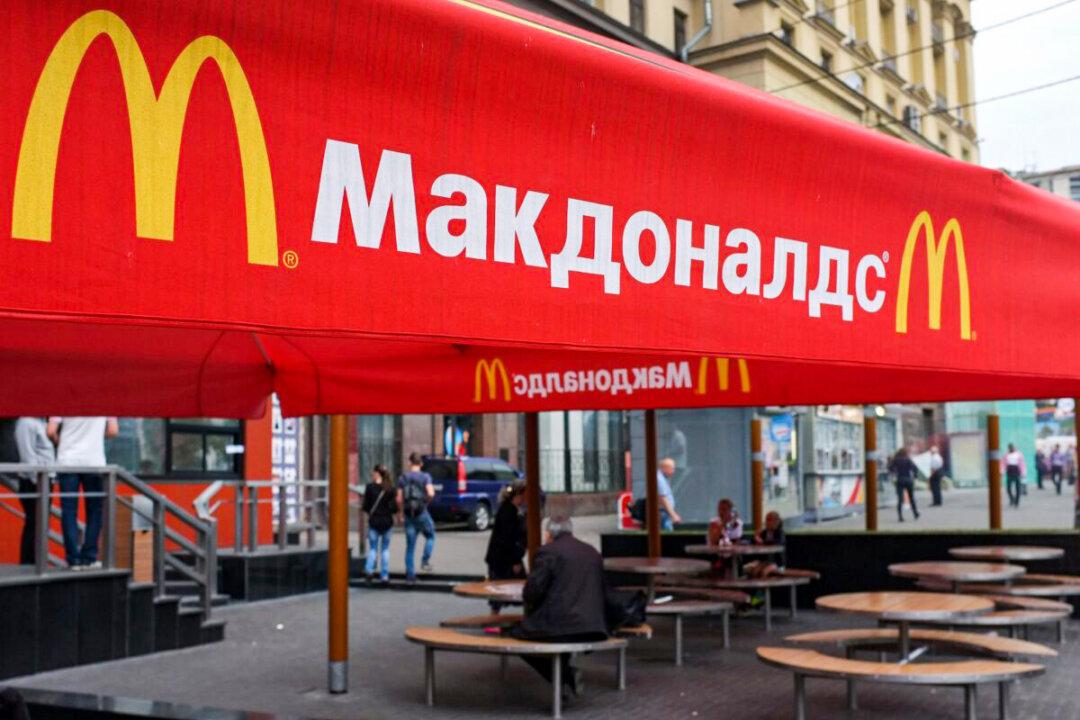The mass exodus of international brands from the Russian Federation has prompted the emergence of knock-off imitators, which have attempted to fill the void of Western capital while maintaining a sense of the familiar with subtle alterations of known foreign brands.
When McDonald’s suspended activities in Russia on March 8 following a period of public backlash in the early weeks of the war, its franchises were quickly filled by an indigenous Russian competitor called “Uncle Vanya,” a brand that modifies the iconic golden arches of McDonald’s to represent the Cyrillic character “В,” which forms the “v” sound in “Vanya.”





